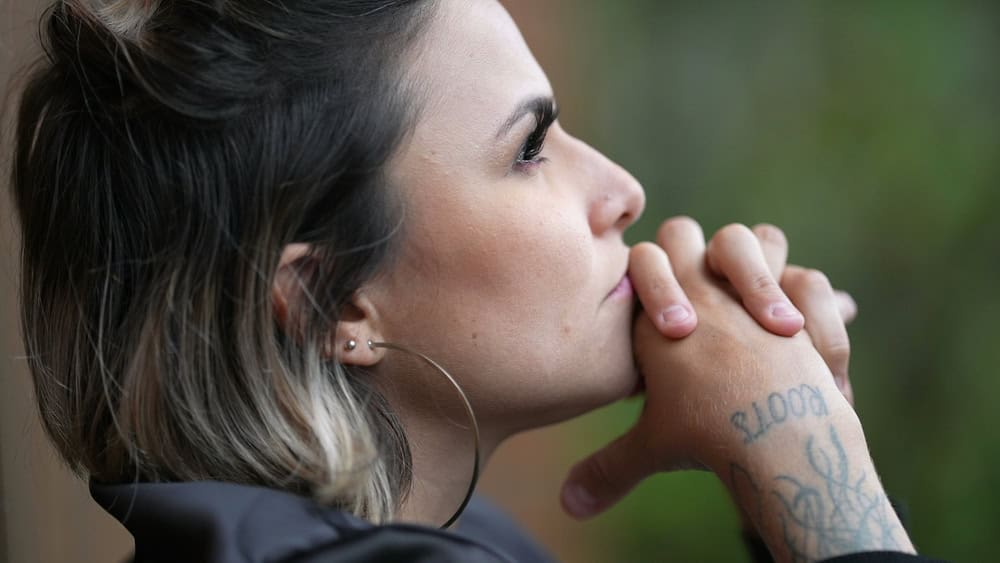


There’s a lot of stigma surrounding addiction. People misinterpret it as a moral failing rather than a complex interplay of emotional, psychological, and social factors. So, in recovery, it can feel like you're carrying the weight of societal judgment. Add that to the internal struggles of shame and guilt, and it all becomes an overwhelming burden that makes it hard to move forward.
But the good news is you can break from the shackles of shame and guilt in addiction recovery, and we’ll explain how in this article.
When you’re in addiction recovery, it's common to experience intense feelings of guilt and shame. These emotions can make you feel like you're not just battling the addiction itself but a deep sense of being a "bad" person.

Guilt stems from reflecting on actions and behaviors during the period of substance use that may have hurt others or conflicted with your personal values. You might feel guilty for things like:
Shame is more pervasive and personally destructive than guilt. It arises from the feeling that you, as a whole person, are flawed or unworthy due to your past with substance use disorders. For example, you might feel ashamed when thinking about how your behavior was viewed by others, leading to a deep-seated fear of being judged or ostracized. Shame causes beliefs like:
As a result, you may struggle with low self-esteem, perfectionism, people-pleasing or even guilt. Shame is painful and can lead you to hide away rather than seek help for your addiction. It may drive you to silence, hide the truth, destroy your self-worth or even make your dreams feel impossible.
Yes, you might have done a few things you’re not proud of during the darker times of your addiction. It's important to remember that these actions, while regrettable, don't define who you are or what you are capable of achieving in your recovery.
Recovery is a journey, and like any journey, it involves learning and growth. Overcoming the deep-seated feelings of shame and guilt is a crucial phase in this journey. Let’s explore some effective strategies for managing these emotions.

One of the most powerful steps to overcome shame and guilt is to learn to forgive yourself. Understand that everyone makes mistakes; it's a part of being human. Reflect on your actions with compassion rather than self-condemnation.
Consider writing a letter to yourself, acknowledging your mistakes but also emphasizing your worth and capacity for growth. Recognize that holding onto guilt and shame only hinders your progress and that forgiving yourself is essential for moving forward in your recovery journey.
Finding a therapist can be a crucial step in addressing both shame and guilt. Therapists specialize in understanding the complexity of emotions you’re dealing with. They can offer a safe space for you to explore the root causes of these emotions and develop healthy coping mechanisms. Through therapy, you can gain insight into your thought patterns and behaviors, learn practical strategies to manage stress and mental health issues and work towards self-acceptance and healing.
Self-care is fundamental to nurturing your mental and emotional well-being, especially during times of struggle. Identify self-care activities that bring you comfort and peace, whether practicing mindfulness, engaging in physical exercise, spending time in nature, or pursuing hobbies and interests. These practices not only help alleviate stress but also serve as a reminder of your inherent worth and value as a person. Prioritize self-compassion and make self-care a regular part of your routine to combat your proneness to shame.
Addiction often strains relationships with loved ones. As part of your recovery process, make efforts to repair and rebuild these relationships. Communicate openly and honestly with those you've hurt, expressing remorse and a commitment to change.
Through your actions, demonstrate that you're dedicated to maintaining healthy connections and rebuilding trust. Repairing relationships takes time and patience, but it can be a significant source of healing and support in overcoming shame and guilt.

Addiction is not simply a matter of weak willpower or moral failing. And it is not something that you can overcome through sheer determination or moral rectitude. It involves complex interactions between psychological, environmental and biological factors.
This knowledge can help shift your perspective from self-condemnation to self-compassion. It can also reduce stigma and create a supportive environment that fosters empathy rather than judgment.
Sometimes, the best way to figure out how to stop feeling bad about something you did is by talking with peer. Your peers have gone through similar struggles; they’ve struggled with abuse, made mistakes, gone through treatment, and are thriving in sobriety. They can be resourceful and offer tips on how to handle stress, what to do when you feel bad, etc., based on their experiences. And the best part is you can share your worries with them without fear of judgment.
In addition to peers, you should surround yourself with people who genuinely value and support you for who you are. They will be willing to lend a hand when you need it the most. They may provide a shoulder to lean on, help with daily tasks, or even offer transportation to therapy sessions or medical appointments.
This support can alleviate stress and make it easier to focus on the recovery journey. Avoid people who undermine your progress or contribute to feelings of shame and inadequacy.
Addiction affects millions of people in the United States. Like other chronic conditions, it can happen to anyone. Simply put, having an addiction or mental illness does not make you a bad person. But you should make amends and improve your relations if you said or did harmful things.It’s also a good idea to seek medical advice and professional support. If you are having a hard time with these, our therapists at More Than Rehab are here to help. Contact us today. Help is only a phone call away.


